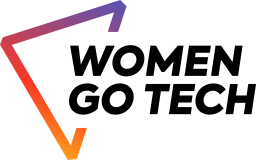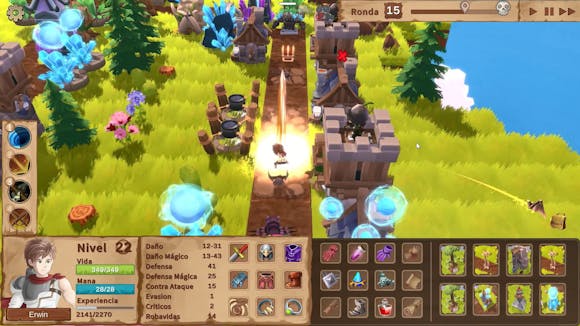
Professional Mentorship and Collective Dialogue to Reduce Gender Gap in Post-Pandemic Tech Sector, Recent Report Shows

Women Go Tech
Although the pandemic has spurred the growth of the information and communication technology (ICT) sector, only 1 in 5 ICT specialists is a woman. Women Go Tech, a Lithuanian mentorship program for women, and the Nordic Council of Ministers Office in Lithuania have published a report on the prevailing gender gap in tech fields to indicate professional mentorship and constructive discussions between organizations as possible solutions.
October 12, 2021. The information and communication technology (ICT) sector has been given a swift push at the onset of the COVID-19 pandemic: during 2020 the number of ICT specialists employed in the European Union has increased by approximately 600K as compared to 2019. However, the gender gap prevailing in the ICT workforce in the EU, where only 1 in 5 ICT specialists is a woman, has retained its relevance: only 18.5% of ICT jobs were held by women in 2020 and the current numbers are anticipated to increase only to some degree by 2025.
Formal education systems, which contribute to the ICT workforce, also experience a similar gender gap as only 16.7% of young adults to hold a degree in an ICT field in European countries throughout 2020 were women.
Initiatives throughout Europe to discuss tech jobs-related gender gap
As a means to discuss the pressing issues regarding the gender gap in the ICT sector and provide good practices from different organizations to other businesses and institutions, the Nordic Council of Ministers Office in Lithuania, the official body for intergovernmental co-operation in the Nordic Region, has collaborated with Women Go Tech, a non-profit organization based in Lithuania, to publish the report “ICT Workforce in Europe and its Gender Challenge after COVID-19. An Overview of Good Practice Solutions, with a Focus on the Nordic-Baltic Region.â€
The report is also the result of the exploratory project “Developing an Inclusive Tech Ecosystem in the Nordic and Baltic Regions,†initiated by the Nordic Council of Ministers Office in Lithuania and Women Go Tech in 2019. The project was prompted by a range of initiatives aimed to change the current under-representation of women in the ICT sector in the Nordic-Baltic region.
Throughout the duration of the project, the organizers visited local organizations in the Nordic-Baltic region countries: Latvia, Estonia, Iceland, Denmark, Sweden, Finland, and Norway. Workshops and discussions have been initiated in the target countries to determine the steps that local organizations are already taking to reduce the gender gap in the ICT sector and ways to empower women to pursue careers in tech fields.
The universal problems determined during the workshops in relation to the low percentage of women in tech fields—gaps in education systems, mistakes in suggesting different, gender normative careers to boys and girls at school, etc. Having identified the common issues, the participating businesses and organizations shared their research, internal initiatives, and solutions to change the current situation.
Professional mentorship as means to empower women tech career-wise
As determined by the project, one of the possible solutions to improve the situation might be professional mentorship. Women Go Tech, the first and only mentorship and counseling program for women in Lithuania, aimed at helping women to enter the ICT workforce, has been implementing six-month programs for women for five years now. Each season, tech business executives and experts mentor selected attendees to help them learn about and pursue a variety of tech career opportunities.
According to Žydrūnė Vitaitė, co-founder of Women Go Tech, the entire Nordic-Baltic region comes third in the European Union in terms of tech specialists. However, the numbers of women employed in the ICT sector remain low like in the rest of the European countries.
“We want to bring new talents to the ICT sector, particularly women since they are almost five times less likely to choose tech-related jobs. For this reason, our aim is to encourage discussions on the gender gap in tech fields at a regional level,†said VitaitÄ—. “During the project with the Nordic Council of Ministers Office in Lithuania, we had meetings with a number of organizations in different countries where our differences became recommendations, experiences—good practices, and the dialogue in its entirety was cataloged in the report on the ICT sector challenges.â€
VitaitÄ— also added that although local initiatives have already brought exceptional results, Women Go Tech wants to encourage the representatives of the ICT sector to take in the tried-and-tested good practices and join other organizations in the region in empowering women to enter the tech workforce.
Thanks to the combined volunteer resources, political patronage, and financial support of the partners, the Women Go Tech has already achieved impressive results during the five iterations of the programs—over 400 career-change stories by the end of 2020. Women Go Tech has reported that 70% of former mentees declare to have entered jobs in the tech sector within one year after completing the program while 52% of the participants have entered the tech workforce during the program.
Women Go Tech also responded to the COVID-19 crisis by partnering with Riga Tech Girls to launch a preparatory program “Discover Tech.†The program has been focusing on enabling women without a tech background to enter the ICT workforce. Over 10K participants in 2020 and 9K participants in 2021 enrolled in the program, and it is anticipated that 30% of attendees will be able to join the tech sector afterward.
The non-profit organization is planning to further assist women in establishing their careers in the tech sector, and is currently preparing for the sixth season of the mentorship program and the second season of “Discover Tech.â€
-END-
About Women Go Tech
Women Go Tech is a non-profit organization and the only mentorship and counseling program for women in Lithuania. Launched in 2016 to empower women to discover and build careers in tech fields, the organization has completed its fifth season. Aside from over 350 professional mentors, Women Go Tech is supported by former Lithuanian president Dalia GrybauskaitÄ— as well as Lithuania-based tech enterprises and startups.



